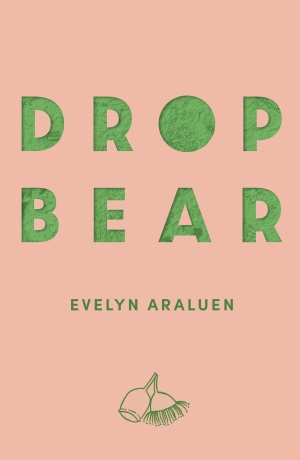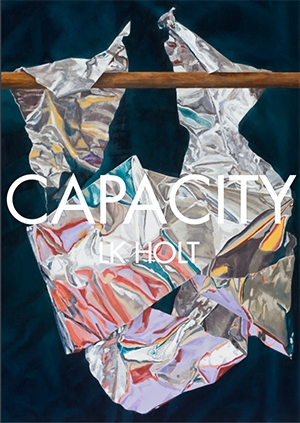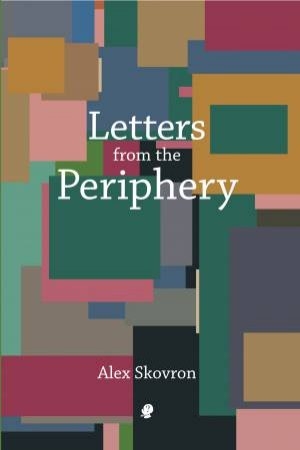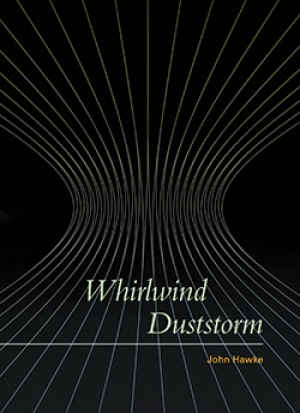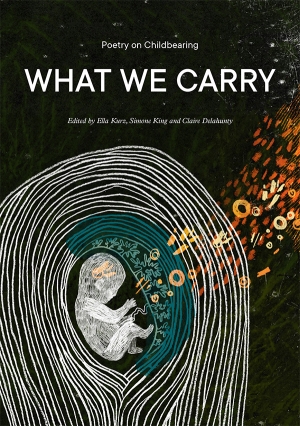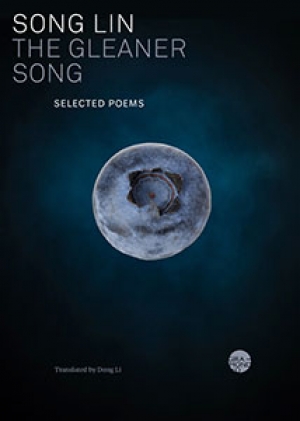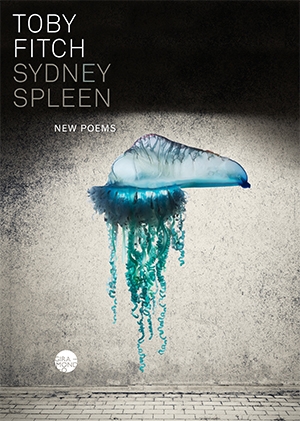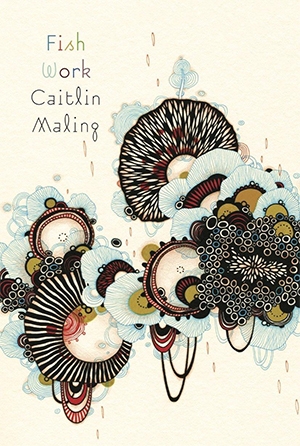Australian Poetry
Prithvi Varatharajan reviews 'Dropbear' by Evelyn Araluen and 'TAKE CARE' by Eunice Andrada
There is a moment of reflexivity in Evelyn Araluen’s diary poem ‘Breath’, in which the poet, thousands of kilometres away, follows news reports of bushfires ravaging Australia, including the Dharug Country where she grew up. ‘I’ve started a book which seeks to tease the icons of Australiana that have been so volatile to this country. They, too, are burning,’ she writes. Several reviewers have focused on this dimension of Araluen’s début. Dropbear contains many poems that excoriate the tropes of colonial literary kitsch. This genre takes native vegetation and wildlife, and Aboriginal people, and transforms them into the cute, the twee, or the fearsome. Dropbear responds to May Gibbs’s Snugglepot and Cuddlepie, Dorothy Wall’s Blinky Bill and Nutsy, D.H. Lawrence’s Kangaroo, and Banjo Paterson’s poems and diaries, among other texts and films. In a scholarly essay (2019) that addresses the legacy of Edward Said’s Orientalism, Araluen has argued that we still underestimate ‘literature’s power to operate as a force of imperialism’. For the Bundjalung poet and academic, the personal in poetry is inseparable from the political – as well as from the historical and the literary-historical.
... (read more)Joan Fleming reviews 'Capacity' by LK Holt and 'Theory of Colours' by Bella Li
These days, poetry is primarily a visual experience. So claims the American poet and theorist Cole Swensen, whose essay ‘To Writewithize’ argues for a new definition of ekphrasis. Traditionally understood to be writing about visual art, ekphrasis typically has a poet stand across from a painting or sculpture, in a kind of face-off, and write about it. To ‘writewithize’, however, is to take a different approach: this is not writing made about art but made with it. This is writing that, in Swensen’s words, ‘lives with the work and its disturbances’. Two new Vagabond releases by Bella Li and LK Holt are doing ekphrastic and intertextual work that is exquisitely disturbing. These are moody books of allusion and visual play by two of Melbourne’s most brilliant poets.
... (read more)New poetry collections by Jazz Money, Ann Vickery, and Lucy Van
Good poetry uncovers the secret in the manifest, and the manifest in the secret. Three new collections throw this paradox into vibrant, unsettling relief. Each book deserves a broad readership. Each beats back the lethargic thinking that has invaded society under the cover of the pandemic.
... (read more)New poetry collections by Anne Elvey, D.J. Huppatz, and Young Dawkins
I was surprised by the title of Melbourne-based Anne Elvey’s recent collection, Obligations of Voice (Recent Work Press, $19.95 pb, 89 pp). Though quite a mouthful, it’s bravely deliberate; Elvey wants you to slowly voice and feel the syllables. Several poems centre on the mouth or lips for political, theological, even surrealist ends. The poem ‘Afternoon Tea, Seaford Beach Café’ begins with the line ‘A woman stands’. Floating in the right margin is the phrase ‘at the back of a throat’. These fragments coalesce to describe the woman’s mouth or the mouth she’s lodged in. Breathing and ‘charcoal’ gums are collaged with the ‘Dark // corrugations’ and the landscape of the sea. The last line surprises by changing tack: ‘A skiff // bounces on a swell.’ This clipped linguistic dexterity, with a flash of painterly movement, characterises Elvey’s nuance and facility.
... (read more)Geoff Page reviews 'Letters from the Periphery' by Alex Skovron
To those who have followed Alex Skovron’s poetry since The Rearrangement (1988), it’s not a surprise to learn that he has been the general editor of an encyclopedia, a book editor, a lover of classical music and chess, an occasional translator of Dante and Borges, and the author of six well-spaced poetry collections, a stylish novella, and a collection of short stories. He can often seem the very embodiment of the European/Jewish/Melburnian intellectual (despite an adolescence spent in Sydney).
... (read more)Jennifer Harrison reviews 'Whirlwind Duststorm' by John Hawke
In the epigraph to this collection, a quote from Jean-Paul Sartre on Edmund Husserl suggests that we are entering a poetic that challenges the possibility of conscious knowledge; consciousness is itself a maelstrom that extrudes the intruder and has ‘no inside’. What follows is both a refutation and embracement of this assertion in chatoyant language that is as thoughtful and melodic as it is powerful. The reader is obliged to work hard to navigate the narrative, and I have rarely read poetry where the search for meaning has been felt so deeply.
... (read more)Jane Gibian reviews 'What We Carry: Poetry on childbearing' edited by Ella Kurz, Simone King, and Claire Delahunty
On her explosive, feminist début album Dry (1992), a young P.J. Harvey sang ‘Look at these my childbearing hips’, proudly proclaiming women’s strength and physicality. The word ‘childbearing’ conjures strong feelings and images for many of us – whether of childbirth, sleep deprivation, devotion, or a whole new way of life. It signifies much more than childbirth itself and is a fitting choice for the subtitle of this anthology, Poetry on childbearing. This emotionally powerful collection covers an expansive range of experiences: infertility, conception, pregnancy, birth, and life with a baby (or not).
... (read more)Nicholas Jose reviews 'The Gleaner Song: Selected poems' by Song Lin, translated by Dong Li and 'Vociferate | 詠' by Emily Sun
The Chinese poet is so often a wanderer and an exile. The tradition goes back to Qu Yuan (c.340–278 BCE), author of ‘Encountering Sorrow’, the honest official who was banished from court and drowned himself in a river, and it continues to our time. During the Sino–Japanese war (1937–45) a group of patriotic early Chinese modernists were displaced from their Beijing universities to an improvised campus in the south-west, where they read avant-garde Western poetry.
... (read more)Sydney-based poet and editor Toby Fitch has spent much of the last decade traversing the field of radical French modernist poets, especially Arthur Rimbaud and Guillaume Apollinaire. That engagement ignited Fitch’s imagination. He began inverting, recombining, mistranslating, and mimicking their techniques in his own poetry. In his new collection, Sydney Spleen, he has made a sophisticated, fresh move that enhances his signature playfulness and tongue-in-cheek poetic antics.
... (read more)Ella Jeffery reviews 'Fish Work' by Caitlin Maling and 'Earth Dwellers: New poems' by Kristen Lang
New collections from Caitlin Maling and Kristen Lang are situated in vastly different landscapes but pursue similar ideas about the natural world’s fragility and the imminent environmental catastrophe. Maling’s Fish Work, as its title suggests, is primarily interested in marine life and the scientists studying it at Lizard Island Research Station on the Great Barrier Reef, while Lang’s Earth Dwellers explores mountains, caves, and coastlines in Tasmania and Nepal, examining the myriad complexities of ancient ecosystems. Maling’s and Lang’s new books, their fourth collections, urge readers to attend to the work of millennia that has produced these distinctive ecosystems and, in doing so, to appreciate the urgency of protecting them.
... (read more)
